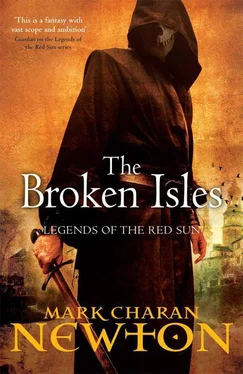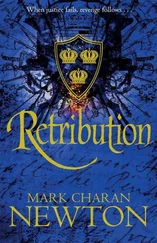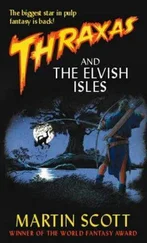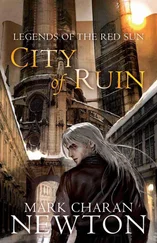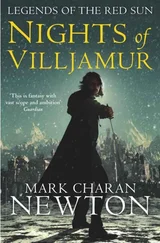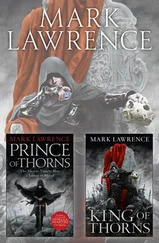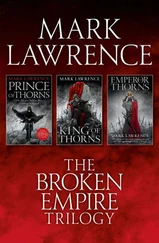Mark Newton - The Broken Isles
Здесь есть возможность читать онлайн «Mark Newton - The Broken Isles» весь текст электронной книги совершенно бесплатно (целиком полную версию без сокращений). В некоторых случаях можно слушать аудио, скачать через торрент в формате fb2 и присутствует краткое содержание. Жанр: Фэнтези, на английском языке. Описание произведения, (предисловие) а так же отзывы посетителей доступны на портале библиотеки ЛибКат.
- Название:The Broken Isles
- Автор:
- Жанр:
- Год:неизвестен
- ISBN:нет данных
- Рейтинг книги:5 / 5. Голосов: 1
-
Избранное:Добавить в избранное
- Отзывы:
-
Ваша оценка:
- 100
- 1
- 2
- 3
- 4
- 5
The Broken Isles: краткое содержание, описание и аннотация
Предлагаем к чтению аннотацию, описание, краткое содержание или предисловие (зависит от того, что написал сам автор книги «The Broken Isles»). Если вы не нашли необходимую информацию о книге — напишите в комментариях, мы постараемся отыскать её.
The Broken Isles — читать онлайн бесплатно полную книгу (весь текст) целиком
Ниже представлен текст книги, разбитый по страницам. Система сохранения места последней прочитанной страницы, позволяет с удобством читать онлайн бесплатно книгу «The Broken Isles», без необходимости каждый раз заново искать на чём Вы остановились. Поставьте закладку, и сможете в любой момент перейти на страницу, на которой закончили чтение.
Интервал:
Закладка:
‘This is why you keep him in the cage then,’ Brynd observed. ‘We have a term for something similar in our world — it’s called a suicide watch.’
Artemisia looked to her elders sat within their raised, glowing antechamber, and then back to Brynd. ‘You are most perceptive, commander. We are watching, as you put it, to see if he attempts to end his existence — for we do not entirely know what will happen.’
‘How d’you mean?’ Brynd demanded.
‘Simply that,’ Artemisia replied. ‘He’s an entity of immense power. For him to end his life, our own technicians think that it would mean. . that power would have to be redistributed.’
‘How do you mean? As in, he may explode?’
‘That may well happen,’ Artemisia said. ‘And it could be severe enough to cause great instability to his surroundings.’
Brynd eyed the man behind the light cage for a moment or two longer. It was true Brynd had hoped the man could help them, and now he felt only a deep sense of frustration. A key piece of his military operation had suddenly collapsed.
Brug suddenly approached Brynd’s side. ‘A word, sir.’
‘Go ahead.’ Brynd turned to him as Artemisia continued her slow pace around the cage.
‘You may recall some of the warriors of the Aes tribe when they undergo their birthing ceremony,’ Brug began.
‘What of it?’
‘Well, the birthing is rebirthing in that instance, of course, but the principle may remain the same: that of a possibility of a glorious birth in a new realm through the notion of sacrifice in battle .’
‘I still don’t follow,’ Brynd muttered. ‘Get to the point.’
‘If Frater Mercury wants to die and is going to explode, why doesn’t he do it in battle in order to help us?’ Brug grunted. ‘Better still if he’s in the middle of a thousand Okun.’
‘Better still ,’ Mikill said, ‘if he can kill himself up in that sky-city thing, he may well bring it to the ground.’
Brynd let the thoughts move around his mind. It seemed perfect. Frater Mercury would get his wish to end his life, leaving the greatest possible chance for lasting peace behind, and the united forces would stand a better chance of wiping out the invaders on Jokull.
‘Excellent suggestions,’ Brynd whispered, and turned to Artemisia.
‘How does Frater Mercury view your enemy? Does he care for them in the same way?’
‘No. Do not forget they rose up against a vastly peaceful culture, bent on destruction — they would see all his creations destroyed. It is our understanding that he views them as he would a violent, murderous son or daughter. With sympathy, disappointment, wishing he had never created them in the first place. It is why he remained with our culture.’
‘In that case, could we liaise with you and your elders?’
They negotiated for the better part of two hours before the elders would even grant permission for Brynd to consult Frater Mercury.
Brynd stood before them — below them — staring up into their illuminated faces, sagging with age, as they painfully contemplated his requests. Artemisia and some of her colleagues mediated, and Brynd could never be certain just how much of her own feelings she was inserting into the conversation.
As expected, the elders were reluctant at first. A culture did not simply abandon its god so easily; however, the way Brynd presented the case, it was logical, almost irresistible for them to use Frater Mercury as a weapon in such a way, providing he agreed.
Problems were mooted from the off: ‘One simply does not drop him into the heart of the Policharos,’ they claimed, via Artemisia. ‘He might not want to die in such a way,’ they asserted.
Immediately it became clear that these people were unsure how to proceed after having treated Frater Mercury a certain way for so long.
They had kept him prisoner in the tallest structure in their home city, a cage he had built himself so that he might never escape. He had been given moments of freedom, of course, but these were strictly rationed. People came from far and wide to worship him. They offered prayers and asked if he could help them, be it for some pathetically trivial matter in their own lives, to more elaborate tasks like moving islands through the sky.
Brynd couldn’t be certain, but it seemed as if these elders — or whoever had imprisoned him — saw this not as a form of torture, but as an attempt to show how vital he was to people’s lives.
Brynd tried to understand why, if Frater Mercury was so powerful, he had not found some method of escape.
By this point, time had ground him down, they explained. Millennia came and went, and Frater Mercury was witness to all of it, to the repetitions of his creations: races would continue to wage war, to take what was not theirs, to fail to notice any obvious signs that their cultures were under threat. He watched them, passively, as if it were some enormous experiment unfolding before his eyes — and perhaps it was. Ultimately, he was a scientist, after all, and he had created these cultures.
‘What changed?’ Brynd asked.
Time began to run out and Frater Mercury was the first to see it, to read it in the elements. The sun was fading from the sky and soon the wars had reached their peak and the city in which Frater Mercury was held was being eroded by the advancing armies. The elders requested Frater Mercury’s aid to help prevent a staggering loss of life and, despite the apparent futility, he obliged and found himself trapped even further as the elders showed him just how dependent on him their civilization was.
Perhaps, the elders admitted, they had not treated him fairly, but they did it to preserve their culture.
‘So we both want to use him as a weapon,’ Brynd observed. He turned to the so-called god with an overwhelming sense of sadness. Beneath the veneer of magic and science, beneath the experiences of millennia, here was someone trapped by the very creations he’d given life to.
No, the elders continued, they wanted him to help save lives, not cause harm like a weapon.
Frater Mercury decided that with no future, he’d look to the past. He began to yearn for home, to return to this world — the one he was banished from so long ago due to their fear of his ways with science. He had created many races here, too, and pushed the boundaries of what was acceptable. Cultures could not appreciate him. Religions wished to banish him. People no longer accepted him and he was forced to flee, to our world, and brought his creations with him.
Later, after many wars, pathways of science opened up.
When, thanks to spies, the elders went on, their enemies learned of his scientific methods for breaking through dimensions with Realm Gates, they stole his secrets and mastered the arts. Armies came into this world, bringing slaughter to new shores, to Villiren.
All the while, someone began communicating with Frater Mercury. Somehow, during his few moments of freedom, he managed to communicate back and make it possible to walk away from it all.
And that was exactly what Frater Mercury did.
Now here they all were, facing a stand-off against the races that wanted to cleanse the Boreal Archipelago so it could be resettled by their own kin rather than working together for a peaceful solution.
As the elders stressed again, Frater Mercury should not be allowed to die — he could still offer some kind of help.
‘Your way is delaying the inevitable,’ Brynd concluded, ‘negotiating, settlement, asking small favours to keep people alive long enough to be killed by your enemy. With the proposed solution, it could end these skirmishes once and for all. Besides, if Frater Mercury wishes to die, he should have some say in the matter.’
Читать дальшеИнтервал:
Закладка:
Похожие книги на «The Broken Isles»
Представляем Вашему вниманию похожие книги на «The Broken Isles» списком для выбора. Мы отобрали схожую по названию и смыслу литературу в надежде предоставить читателям больше вариантов отыскать новые, интересные, ещё непрочитанные произведения.
Обсуждение, отзывы о книге «The Broken Isles» и просто собственные мнения читателей. Оставьте ваши комментарии, напишите, что Вы думаете о произведении, его смысле или главных героях. Укажите что конкретно понравилось, а что нет, и почему Вы так считаете.
